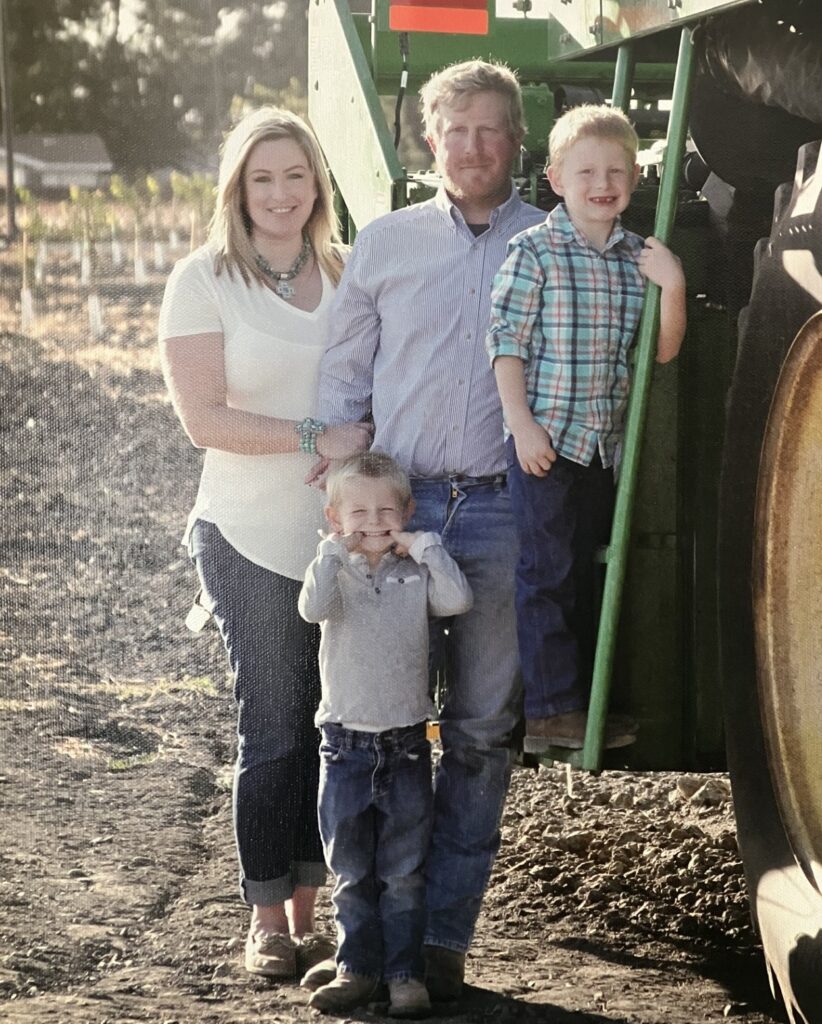Chad Crivelli is the owner of Crivelli Ranch. He serves on the CCOF Board.

Chad Crivelli grew up on the same ranch and dairy farm where his grandfather started his career, listening to family stories about agriculture done the traditional way. When Chad graduated high school and started at Fresno State University in the late 90s, he remembers noticing a shift to a different agricultural approach. “There was this transition to more and more chemicals in food production. The world was scared that population growth was going to outpace food demand, and there was this feverish appetite for more and more farm products. Farmers were thinking, ‘We have to feed more people; okay, Monsanto is going to help us; by gene splicing and spraying chemicals, we can grow more acres more cheaply.’”
By the time he graduated Fresno State in 2001, he’d been taught to see the farm as a factory producing food as quickly and cheaply as possible.
“After running that hamster wheel for years,” Chad says, “I took a step back to look at things more carefully. I wanted to get back to the basics of my grandfather’s generation.” Getting married and starting a family was another big turning point in Chad’s life: “After having kids, I became so much more conscious of farming practices, like what’s on my clothes when I come home at night.” He says that if he has to worry about exposing his family to chemicals “there’s something wrong.”
Chad got involved with the Sustainable Cotton Project, a group that brought together sustainable agriculture professionals from all over the world with a focus on improving air quality for the Central Valley of California. “We shared views and found different ways to manage problems. That really opened my eyes to a whole new world of doing things,” he says. The methods were sometimes difficult at first, such as incorporating organic principles like hedgerows and beneficial insects during a time when there were fewer organic resources and products. But after a few years, Chad found himself fully immersed in the new rhythm. “It took me into this whole world of more sustainable agriculture,” he says.
The new ideas made themselves especially valuable when Chad and his family decided to experiment with growing organic pomegranate trees. In 2007, they dedicated many acres to pomegranates at a time when many of their farming neighbors were also investing in pomegranate trees.
A few years later, the large company Pom Wonderful planted thousands of acres of pomegranates and obliterated the market for small growers. Local acreage of pomegranate farms went from hundreds to zero—but Chad’s pomegranates were the exception.
“Now we’re the only pomegranate growers within miles and miles, because we stayed organic,” Chad explains. “We were able to cultivate the markets for organic fruits. It was our saving grace. We were able to be profitable when nobody else was.”
Organic methods have brought more than financial benefits. Chad recalls growing up hearing his grandfather’s stories about the wild creatures who would visit the ranch and wondering why he never saw any such creatures in the present day. “Since we went organic, the wildlife has been returning,” he says. “Now we’re seeing quail and pheasants come back. That was God’s little sign to me that, hey, it’s working.”
Chad enjoys the big-picture benefits of going organic, too. “Yeah, some people eat my food and benefit that way, but there are a whole lot more who benefit from the air they breathe … the groundwater and streams are all a little bit cleaner, all because of these practices. That part really intrigues me.”
Chad enjoys serving on the CCOF Board and representing the Big Valley Chapter. “I wanted to get more involved with the whole organic spectrum and I’ve been proud to serve on the board for quite a few years now.”
These days, Chad looks toward the future. “The older you get, the more you start looking at ways to live healthier and make the most out of life,” he observes. “I’m surrounded and immersed in nature in everything I do. My kids come out and hunt with me. I start thinking about my grandkids—I’d like them to be able to see quail on the ranch too.”